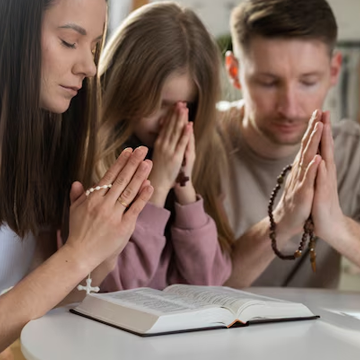
Beyond Rituals: The Deeper Meaning Behind Religious Practices
- J.P. Lagio
- April 9, 2025
Long a major factor influencing human history, society, and personal identification is religion. Although most people know about religious practices, including prayer, fasting, and meditation, their deeper meanings usually go beyond simple behavior. These ceremonies allow practitioners to interact with the divine, clean the spirit, and discover meaning in life’s challenges; they also act as symbolic representations of faith and philosophy.
Author J. P. Lagio transports readers across the world’s religions in his book All Roads Lead Home: Discovering Unity in Diverse Beliefs, so exploring the wide variety of spiritual practices and how they all, in their unique way, seek to answer the universal human questions of purpose, meaning, and connection. We shall examine how some of the most often performed religious rites fit into the larger ideas of J. P. Lagio’s investigation of spiritual oneness and break out the symbolism underlying them in this blog.
The Power of Prayer: A Connection to the Divine
Fundamentally, many religious traditions center prayer as a form of contact with a higher power. Although the precise language and procedures differ amongst religions, the fundamental goal is still prayer as a holy act of dedication and observation. Lagio explores in All Roads Lead Home how prayer connects one with something higher than oneself as well as a means of seeking direction and benefits.
While in Islam, the five daily prayers (Salat) create a rhythm of life that continuously reminds the practitioner of God’s presence and pity, in Christianity, prayer is considered a means of building a relationship with God. In J. P. Lagio’s story, prayer expresses trust, humility, and spiritual relationship rather than only a ceremonial performance. Whether it’s the respectful stillness in a Buddhist temple or the group prayer in a synagogue, prayer leads people toward their faith and, finally, one another.
Fasting: A Path to Self-Discipline and Reflection
Many religious traditions, most famously Islam, have fasting as a rite during the holy month of Ramadan. For Muslims, fasting from dawn till dark is about developing self-discipline, empathy, and mindfulness as much as skipping food and liquids. To reconnect with the divine, clean the spirit, and discover deeper meaning outside the physical world, J. P. Lagio looks at fasting.
Lagio stresses throughout the book how fasting and other customs are supposed to promote compassion and understanding rather than only serve self-denial. Those without food learn about the hardships of the less fortunate, fostering a common human solidarity. This fasting idea connects many cultures since it requires personal sacrifice to reach spiritual development and collective welfare, transcending religious boundaries.
Meditation: A Journey to Inner Peace and Enlightenment
Core to many Eastern religions, including Buddhism and Hinduism, meditation lets people connect with their inner selves and calm the mind. While prayer is an outward conversation with a heavenly presence, meditation is an internal activity to inspire great self-reflection and mindfulness. Lagio muses about how meditation allows people to investigate inner calm, mindfulness, and self-awareness as he travels through the customs of many religions.
For many Buddhists, reaching enlightenment and alleviating suffering depend on meditation as a necessary instrument. Lagio investigates how this technique can enable one to separate from the distractions of daily life, gain clarity in the present moment, and finally achieve harmony with the environment. As Lagio advises, meditation provides a special road to spiritual fulfillment. On this road, the practitioner searches to understand and transcend the world, attaining a condition of calm and emancipation.
The Role of Ritual in Spiritual Practice
The Function of Ritual in Spiritual Development on Every Path Lead Home, Lagio emphasizes how communal and very personal religious practices such as prayer, fasting, and meditation are. These common experiences help Christians relate to one another and strengthen their community membership. Whether via collaborative meditations in Buddhist monasteries or group prayers in a mosque during Ramadan, these ceremonies bind people in a shared search for spiritual development and illumination.
These community activities are significant since they remind us that we are not alone on the spiritual road. Lagio shows how these shared rituals improve relationships, establish understanding, and promote peace in a divided society as he discovers the same threads running across many religions. For believers, rituals allow them to gather, transcend divisions, and concentrate on their faith’s most fundamental, uniting elements.
Conclusion: The Transformative Power of Religious Practices
Fundamentally, religious rituals are potent symbols that capture great spiritual truths rather than only customs or traditions. J. P. Lagio guides us through these rites in his book All Roads Lead Home: Discovering Unity in Diverse Beliefs, exploring how they are not only means of contact with the divine but also means of better understanding ourselves and our place in the world. Through prayer, fasting, and meditation, people can examine their inner selves, deepen their relationship with the divine, and help their local communities flourish.
J. P. Lagio’s research helps us to see that although the outer rituals of many religions may differ, their hidden meanings usually point to the same universal truths. Participating in these ceremonies helps us open ourselves to unity, compassion, and personal development. Ultimately, these disciplines are transforming instruments that assist us on our spiritual path toward knowledge, calm, and enlightenment, not only about meeting religious responsibilities.
